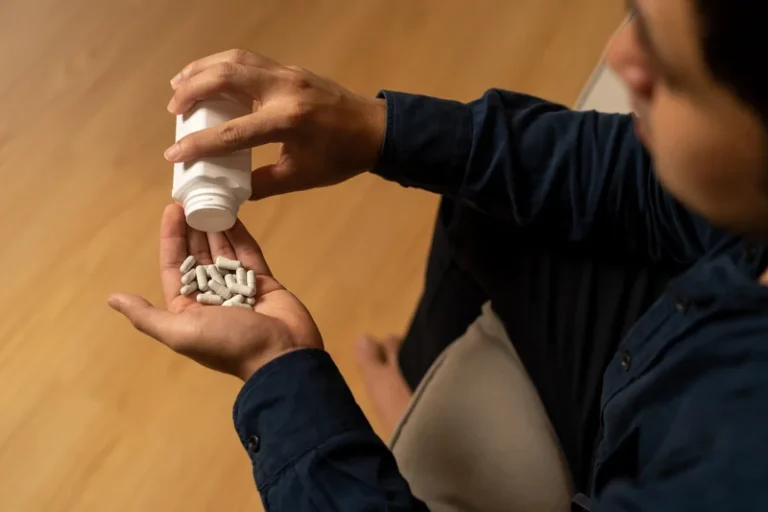Alcoholic Narcissist: How the Two Conditions Are Related

The coexistence of NPD and alcohol addiction can lead to a range of mental health disorders, including depression, anxiety, and distress. The Diagnostic and Statistical Manual of Mental Disorders (DSM) classifies NPD as a mental health disorder characterized by a pervasive need for admiration, sense of entitlement, and lack of empathy. Antidepressants or mood stabilizers might be used to address co-occurring mental health issues often present in narcissistic individuals with alcohol use disorder. Effective treatment for narcissistic alcoholism requires a multifaceted approach. Psychotherapy, medications, and support systems play crucial roles in addressing both the alcohol use disorder and narcissistic personality traits.

What treatment options are available for each condition?
- They may dwell on it, or be haunted by it, and end up enraged or retaliating.
- Dialectical Behavior Therapy (DBT) teaches skills to manage emotions and improve interpersonal relationships.
- The coexistence of NPD and alcohol addiction can lead to a range of mental health disorders, including depression, anxiety, and distress.
- They may believe that only their version of reality is accurate and are often unconcerned with the damage that their arrogant and manipulative behavior does to other people.
- The risk factors, symptoms, and side effects of NPD and AUD are interlinked and feed off one another.
- Both alcoholics and narcissists tend to view others as either enablers or potential threats.
However, it’s recommended that both conditions are treated at the same time to improve your likelihood of recovery. Therapy, a strong support system, and self-care strategies can help you make a full recovery. You might also engage in lifestyle changes and self-care strategies in order to make progress. One such change might be to avoid substances like alcohol if they tend to trigger harmful behavior.
- A strong treatment program will address both the problematic drinking and any other psychological issues, including narcissistic tendencies.
- Being raised by a narcissistic mother can have different impacts on your mental health.
- Let them face the consequences of their behavior and the impact their alcohol abuse is having on their lives.
Alcohol’s Impact on Personality and Behavior
- Individuals with narcissistic personality traits may be more vulnerable to developing alcohol use disorders.
- The person with the disorder is often the last to experience consequences as they manipulate others to protect themselves.
- In fact, an alcoholic narcissist often can’t see things any way other than their own–this is where narcissistic personality disorder can come into play.
Alcoholism is a very serious condition, and without treatment, it can lead to homelessness, failed relationships, and even early death. Inpatient rehab takes place in a residential facility where 24/7 care is provided. This type of treatment is well-suited for individuals who have struggled with their co-occurring disorders while dealing with problems at work or home. Inpatient facilities offer therapy sessions, support groups and medication-based therapy in a safe, supportive environment, allowing individuals to focus on their recovery without outside stress.

Diagnosing Alcoholism and Narcissism
However, in some cases, alcohol addiction develops from social drinking or as a form of self-medication. People with narcissism may have difficulty recognizing or accepting when they lose control of their drinking. Learning about narcissism and alcoholism clinical narcissism and alcoholism independently makes it easier to understand their connections and how the conditions may influence one another. Integrated treatment approaches recognize the interplay between these disorders and provide comprehensive care. For instance, inpatient alcohol rehab in Pennsylvania offers a structured environment where individuals can receive intensive therapy and medical support. This type of setting is particularly beneficial for those with severe addiction and co-occurring mental health issues, ensuring they receive the necessary care to address both conditions.

Clinical narcissists are obsessed with themselves to the point of not being able to form healthy relationships. “Object love” is one way to describe relationships narcissists have with others. Instead of genuinely valuing others, they see friends and loved ones as objects through which they experience various aspects of self-love. Individuals with these types of relationships may not consider how their actions affect others. According to the National Institute of Mental Health, 22.6% of people with a personality disorder may also have a substance misuse disorder. Some mental health conditions are likely to occur together, and when they do, they’re called co-occurring disorders.
- Additionally, there are different types of narcissism, including vulnerable narcissism and grandiose narcissism.
- People with NPD may also not trust healthcare professionals or believe they can help them.
- Mental health disorders and substance misuse often intersect, creating complex challenges for those affected.
- Seeking professional help is crucial in managing these complex conditions.
- A grandiose narcissist may drink to show off and gain admiration from their peers, while a vulnerable narcissist may use alcohol as a coping mechanism to overcome their insecurities.
- Narcissistic individuals may use manipulation to maintain their self-image, while those with AUD may manipulate to hide or justify their drinking.
Little Creek Recovery provides specialized care to help you break the cycle of these co-occurring disorders. So, take the first step towards recovery today by reaching out to us for a professional for support and guidance. When two conditions like narcissism and alcoholism occur together, sometimes people believe that one disorder causes the other, but co-occurring disorders are more complex than that. Research has shown that there is an overlap between alcohol use disorder and personality disorders, including NPD.

Individuals can discuss how NPD and AUD can affect the other with their doctor. Both conditions may influence the other, and some symptoms or behaviors of each condition can overlap. Treatment can help someone with NPD and AUD to change their behavior and reduce the level of dysfunction that these two conditions have in their daily life. When a person has two conditions, the best option is often to treat the two conditions simultaneously. There’s little data on whether people with both NPD and AUD have a different outlook than people who have only one of the conditions.